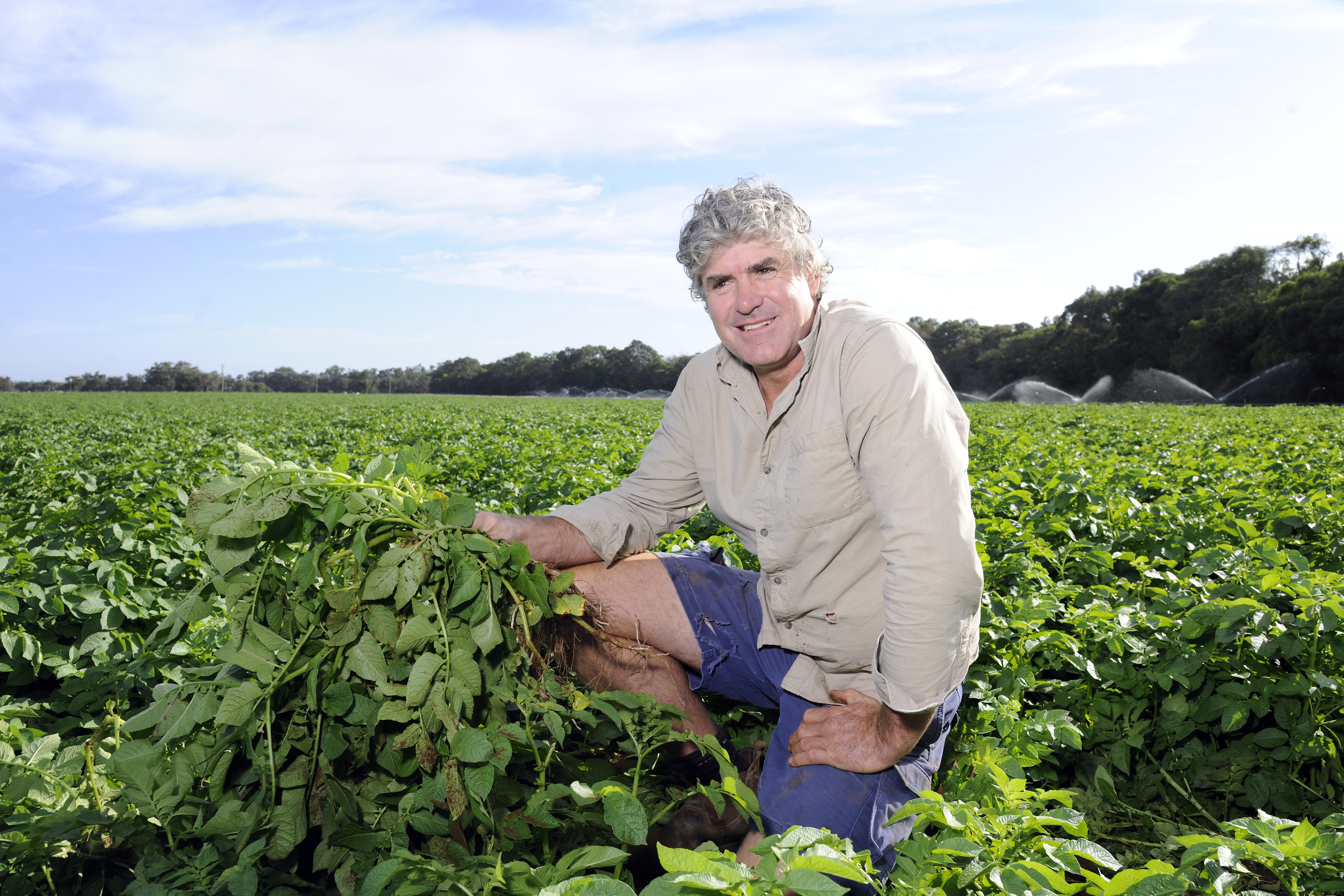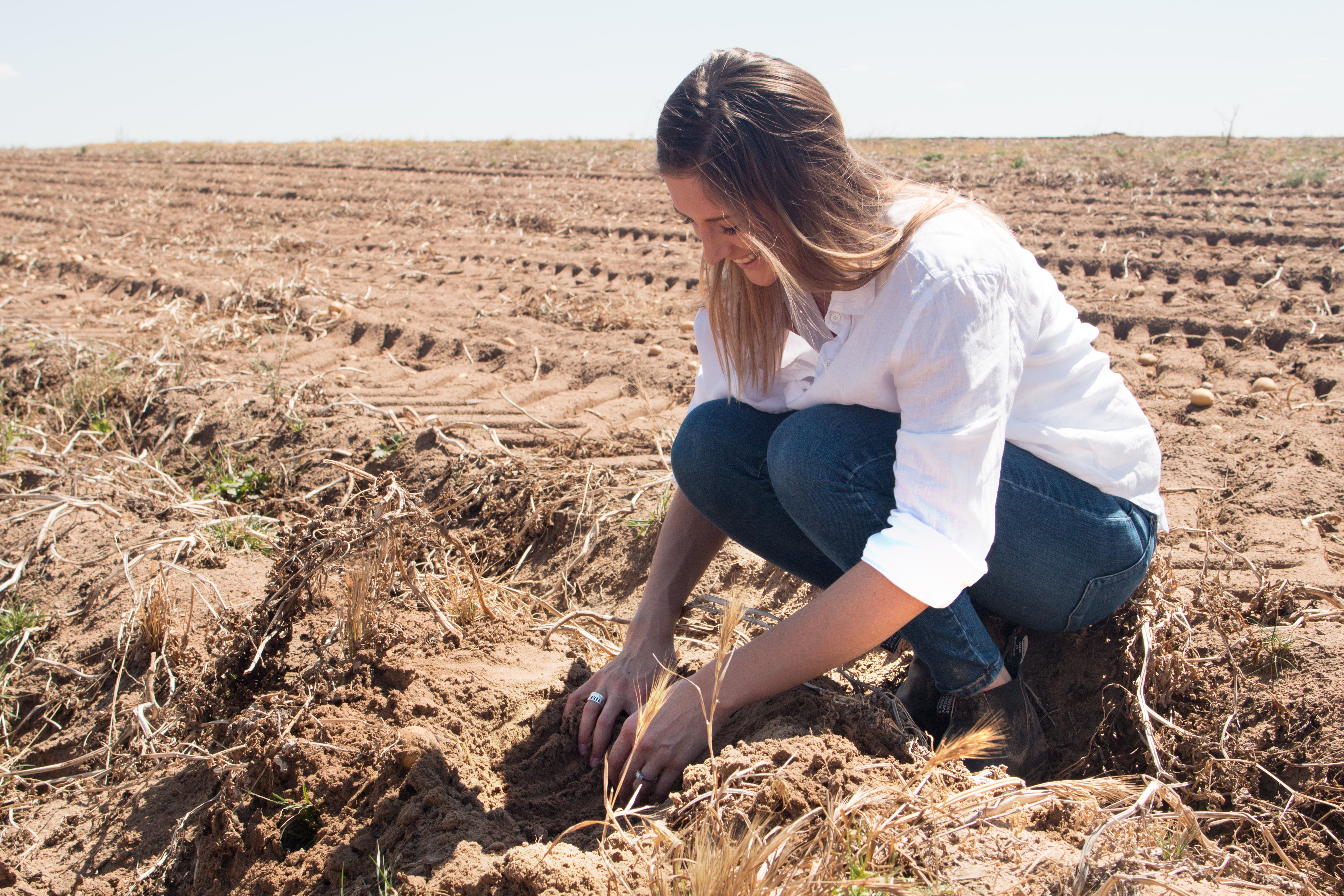
Renee Pye: A fresh outlook on the potato market
11 April 2019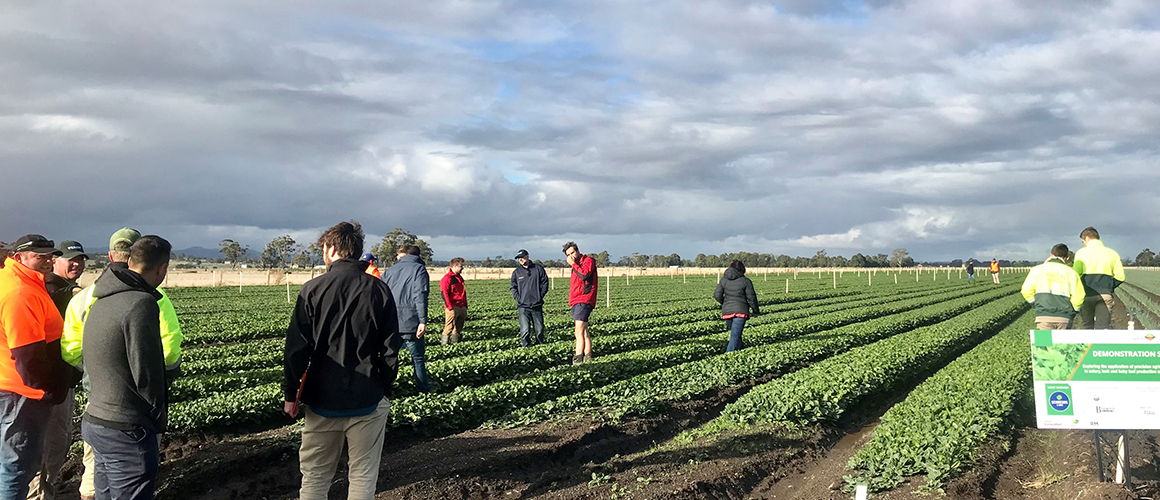
Soil Wealth/ICP trial site helps growers explore precision agriculture technologies
12 April 2019As President of Western Australia’s peak body for potato growers and a grower in his own right, Vaughan Carter has endured three of the industry’s toughest challenges in recent years. However, Vaughan and his peers are slowly overcoming these hurdles and are now focusing on new strategies to ensure the state’s growers remain sustainable and profitable into the future.
Fast facts
Name: Vaughan Carter
Location: Busselton, WA
Works: Marybrook Potatoes
Grows: Potatoes
It has been a difficult four years for the Western Australian potato industry. It began with the deregulation of the state’s potato market and the closure of Smith’s Snackfood Company’s Canning Vale potato processing factory in 2016, while in February 2017 the destructive pest tomato-potato psyllid (TPP) was detected in a Perth backyard.
WA Potatoes President Vaughan Carter was at the forefront of these events. WA Potatoes, formerly known as the Potato Growers Association of Western Australia, is the peak industry body representing around 100 potato growers across the state.
Vaughan is also a third-generation ware potato grower based in Busselton, and after 25 years of growing potatoes as well as many years of serving on the Potato Growers Association, he understands the complexities surrounding industry issues as well as identifying opportunities for growth and development. His role as Potatoes Growers Association President is to chair the Committee of Management and relay concerns and ideas; listen to growers’ concerns or ideas; and monitor industry developments, as well as assist with decisions that need to be made at the political, industry and local level.
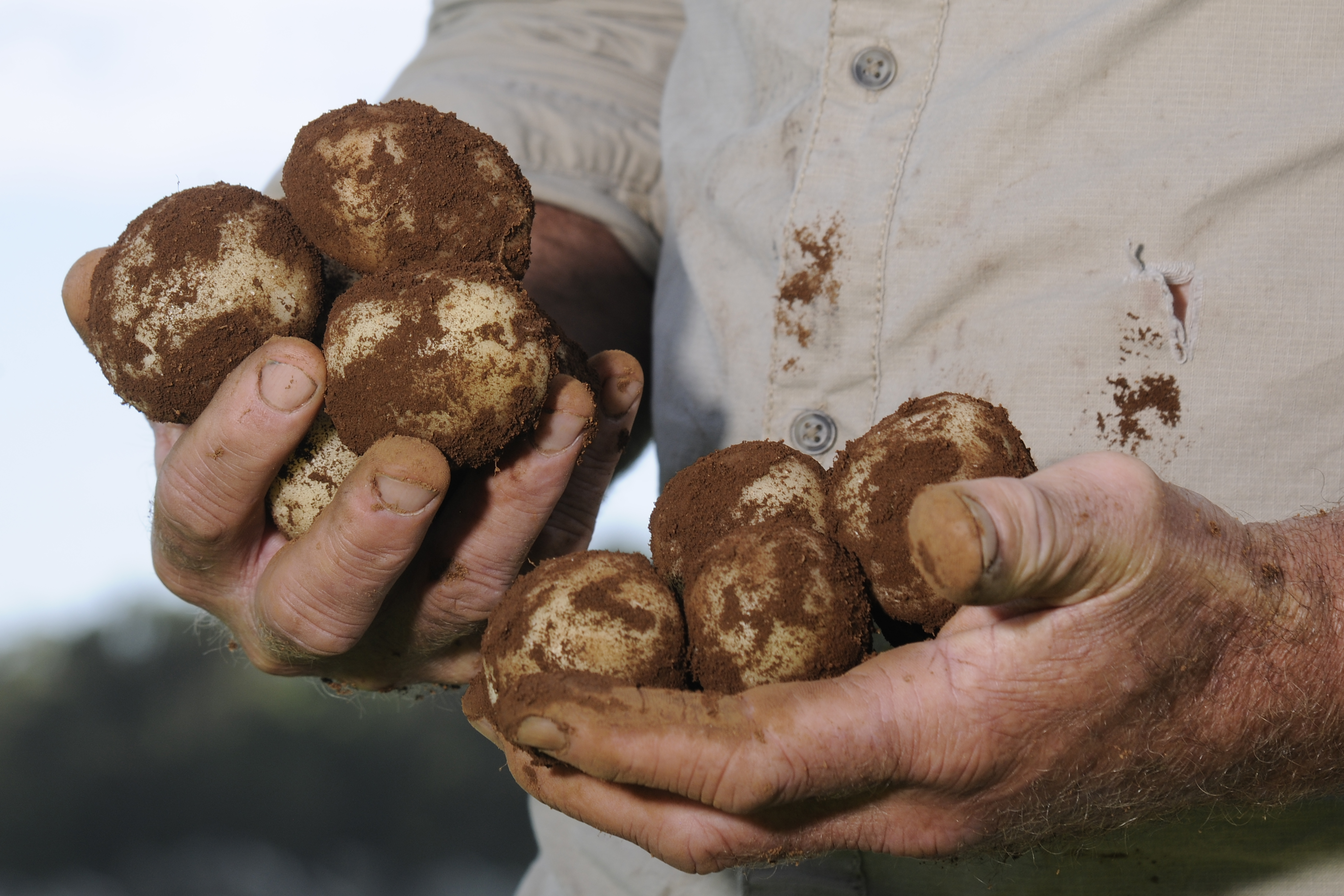
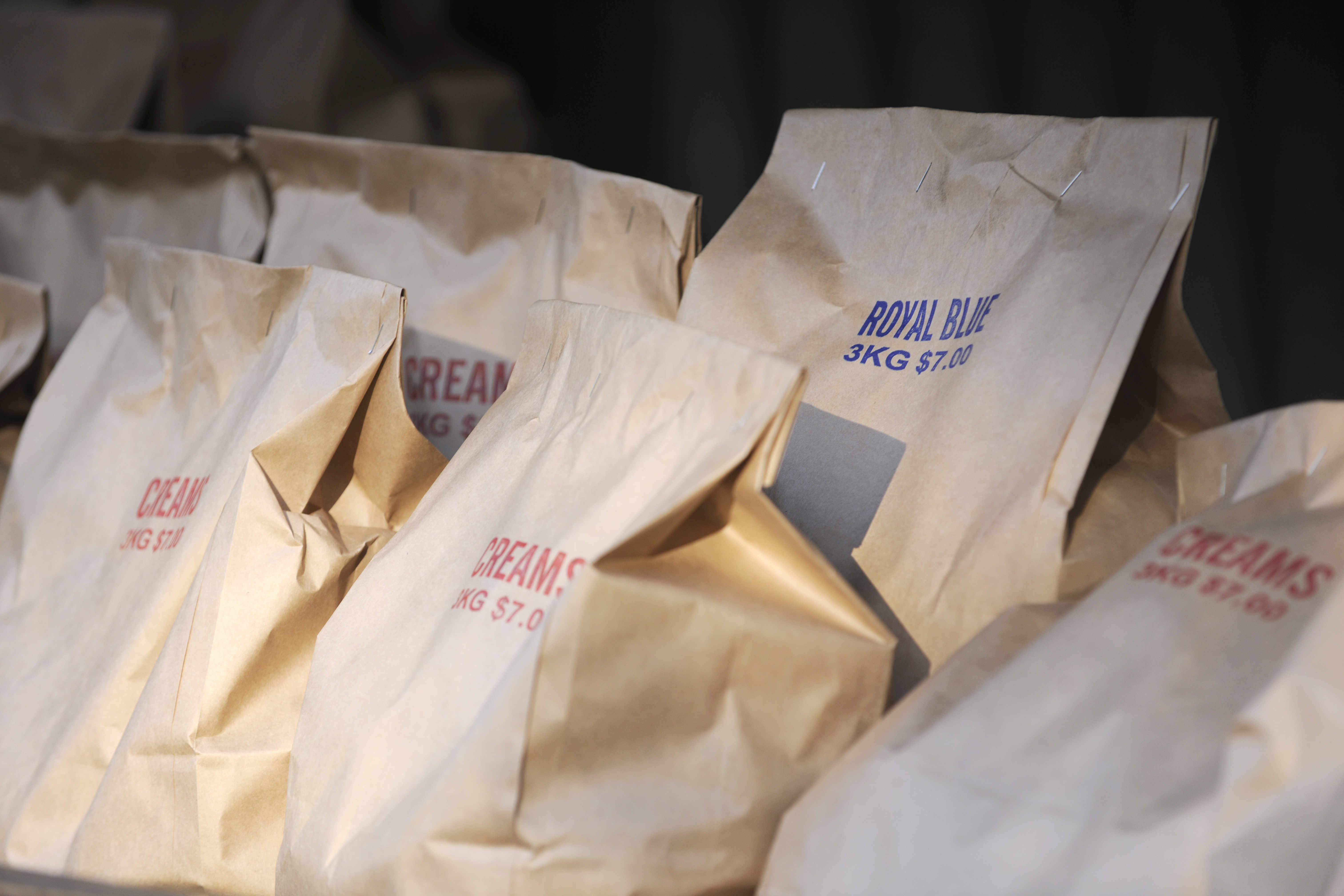
Industry challenges
Vaughan says the trifecta of major events in 2016-17 “turned the WA potato industry on its head”.
“We’re seeing a lot of oversupply on the market and a lot of variance in price,” he explains.
He added that the deregulation of the WA potato market was a long process; one that involved WA Potatoes negotiating with the state government for an assistance package for the west’s potato growers.
“We aimed for $24 million – we didn’t that; we got $12 million plus a $2 million industry assistance package on top of that,” Vaughan says.
“It was great job done by the growers, committee and management.”
While TPP has posed a challenge in more recent times, some valuable lessons have emerged from the incursion.
“We’ve established that TPP doesn’t carry the bacteria that causes zebra chip (Candidatus Liberibacter solanacearum or CLso), which has allowed us to trade back into the east. We see that as a positive,” Vaughan says.
“WA is currently trading back into the east sending potatoes, but supply is slow – the east seems to be fairly flush at this point in time. But as we move forward, hopefully we’ll see opportunities where we can fit some ware potatoes into the east and alleviate a bit of the oversupply on the local market.”
“For my own business, the biggest thing for me now is to maintain what I’m doing and to try and expand."
Export opinion
In a bid to look for new avenues for excess product, WA Potatoes is currently investigating viable export markets in regions such as the Middle East and Asia.
“It’s all about building your business. We’re isolated in WA as far as being able to expand and if there is surplus, it’s very hard to shift because of freight costs into the east,” he says.
“For my own business, the biggest thing for me now is to maintain what I’m doing and to try and expand. Trying to do that in the local market is going to be tough because WA consumers only eat 50-55,000 tonnes per annum, and that is covered.
“For WA to expand, export is the key. We’ve been looking at overseas export opportunities, looking at what the overseas markets are needing, whether it be seed for propagation, product for chipping stock or fresh market potatoes. We’ve got consultants looking at it and using some of the industry package money to investigate it, and we are trying to build that as quickly as we possibly can.”
Export is also an area that should be the focus of potato research and development, according to Vaughan.
“Anything about exports is big for WA. Like I say, we’re fairly controlled as to what volumes we can produce in WA for the fresh market. For expansion to happen (and to make it economically viable and enable businesses to grow), research into export is imperative.
Vaughan added the export opportunities and ability to trade back into the east for seed growers in Albany were a “bonus”, as they were hardest hit by the psyllid incursion.
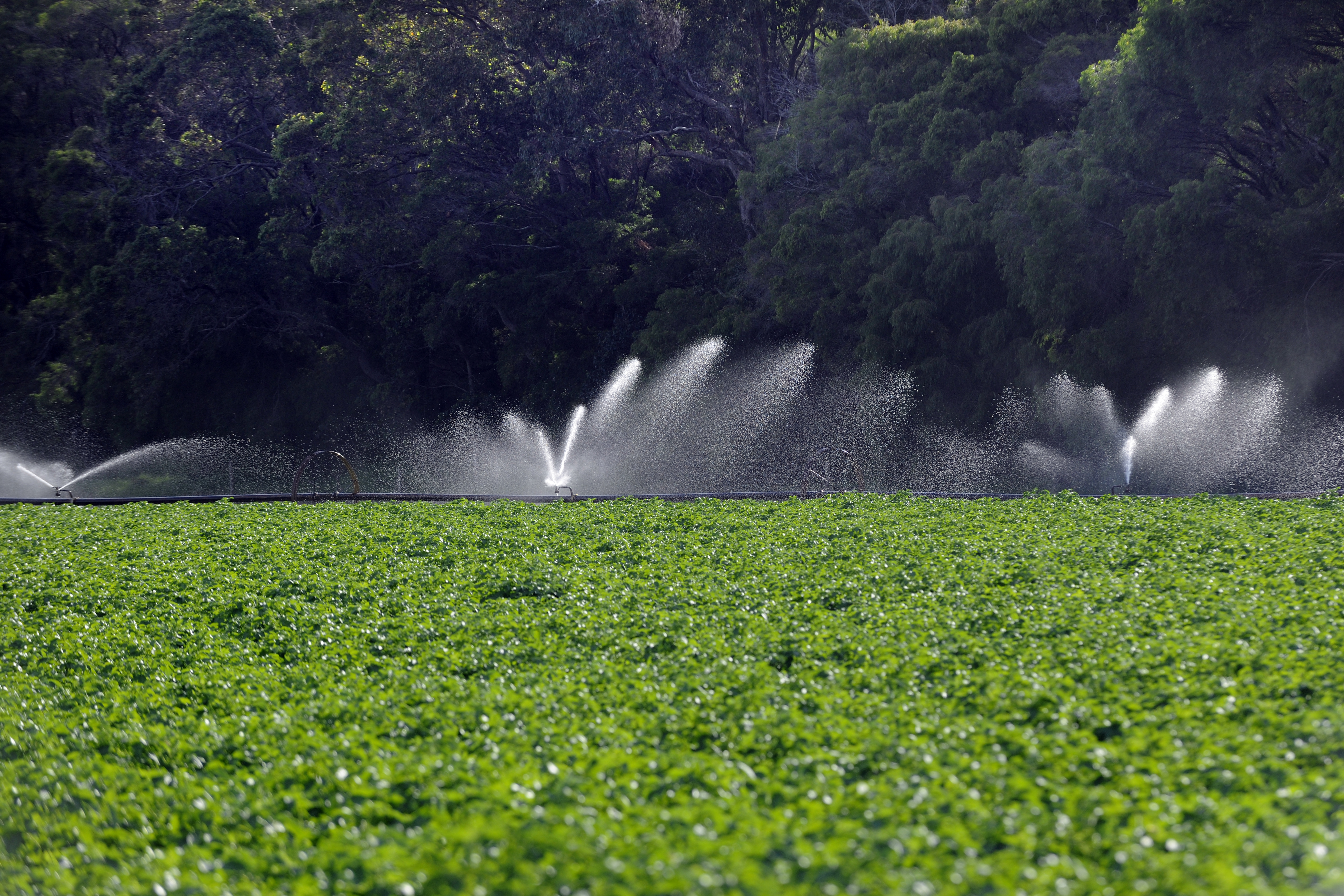
Seizing opportunities
Closer to home, Vaughan has been instrumental in establishing the Busselton-Marybrook Grower Group with the aim of pooling growers’ knowledge to help to improve their businesses.
“We received some funding through the South West Catchments Council, which trialled different initiatives that could help growers’ businesses to improve productivity. We went down the line of soil health – we looked at organic matter, cover crops, rotation, soil types – and the grower group got involved which was great. We’ve seen a little bit of what we did rolling out now with growers, who found it beneficial,” Vaughan says.
Unfortunately, the group is slowing down its activities due to increased costs.
“It’s hard now because the dollar is so tight; growers are concentrating on just keeping their businesses afloat.
“The challenge at the moment is to keep them all together – we’re looking to do a few things with Heritage Seeds, which is a national company, and involving their knowledge on what’s beneficial for organic matter and rotational tools.”
Future plans
Looking ahead, Vaughan hopes to maintain his own growing operation by continuing to produce potatoes for the fresh market as well as hopefully having the secondary option of export.
In the meantime, he is finding opportunities elsewhere: Vaughan has started growing blueberries in a bid to maintain his business’ profitability.
“Expansion is tough on fresh markets. I really have to do something that will prop the business up – just a few more eggs in the basket I suppose,” he explains.
“If the potato industry does struggle, I’ve got something else in the pipeline and I’d be naïve to think potatoes are going to be ‘it’ forever. You just need to diversify in some things. I’ve got a trial plot and will see how it goes. If it goes okay, there’s no doubt I’ll do 50 per cent potatoes, 25 per cent of blueberries and 25 per cent in sheep (fat lambs).”
Despite his foray into blueberries, Vaughan remains positive about the WA potato industry and believes there are opportunities for the next generation of growers.
“WA is unique in that we’re fairly isolated. We produce some magnificent clean, disease-free seed; we’ve got a great seed certification scheme that allows us to produce some of the best seed in the country. And it’s sought-after. South Australia sources our seed for some of its production, and they love it – they know it’s good,” he says.
“That’s probably the greatest advantage in WA and that’s where we’re looking to create opportunities – our location and our very good biosecurity protocols contribute to our ability to produce good, clean product.”
This grower profile first appeared in the leading magazine for the Australian potato industry, Potatoes Australia. If you’d like to subscribe to receive a new edition of Potatoes Australia in your mailbox every two months, use our online subscription form!
Photography credit: Chris Kershaw

